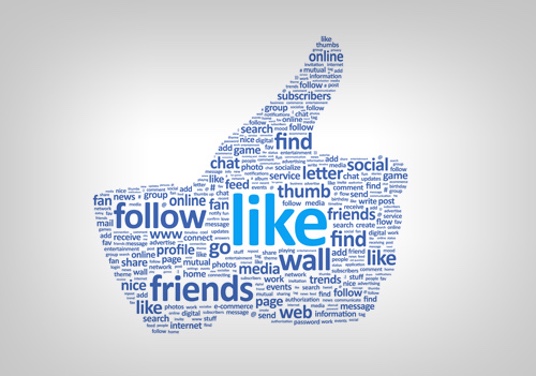
According to the 49th annual installment of the American Freshman, a survey conducted by the Cooperative Institutional Research Program of the Higher Education Research Institute at the University of California, Los Angeles (and recently published in the Wall Street Journal) “28 percent of respondents said they had no religious preference, compared with 24.6 percent last year and 17.5 percent a decade earlier. In 1984, only 8.8 percent of respondents said they had no religious preference.”
This none-too-startling revelation has of course, caused some folk’s underwear to get all knotted and bunched up, since they consider this a sign that we are fast approaching another Armageddon — that the apocalypse is close at hand. Soon some conservative candidate for President will promise voters that they will make college kids go to church if they are elected to serve in the Oval Office.
But it’s not necessarily true that young people are any less religious than their elders, it could simply mean that young people are finding another “religion,” or another way to “pray.”
Humans are highly social creatures; we just love to get together in large bunches, and probably always have. That’s why the Coliseum in Rome was such a big hit. And indeed, long before it was built, men found ways to “congregate” — thus the term “congregation” as it applies to religious groups.
This has no doubt been going on for eons, ever since man first bestrode the earth. I can imagine my African brothers in some distant time sending out messages on drums — once they learned how to make them — to gather folks together to barbecue a prehistoric relative of a wild boar, or the Mayans sending runners out to alert folks in the hinterlands that the chief was calling everyone together to watch (and in some case participate in) the sacrificing of a virgin, or early Celts gathering to get drunk as skunks and act like today’s rowdy soccer punks. We humans simply love to find a reason — any reason — to mob up.
And then one diabolically clever member of the tribe figured out that he could tell spooky stories that would scare the bejeebers out of his fellow tribesmen, thereby convincing them to bring him food so he in return would protect them from the very monsters his imagination created. In that manner he wouldn’t have to go out chasing food or spend time in the hot sun tilling the fields. He could sit around all day on his fat ass, have his way with their virginal daughters and, in some cases, participate in hanky-panky with their prepubescent sons. All that was required of the flock was to remain compliant and silent, so they could gain some later, greater reward the charlatan promised, or to escape some vague, amorphous punishment he threatened them with to keep them in line.
It was such a good gig, such a great hustle, that when writing came along, it wasn’t too many centuries later before “official” churches of various denominations were established, with all kinds of strict, written-down rules that were intended to control behavior that was deemed aberrant. But we know how well that has worked out in terms of preventing abuse, don’t we?
Someone once said that if God didn’t exist, humans would have to invent him. Still, it was considered far better to gather together for supposedly good and moral purposes like praying than to see lions eat Christians or burn some innocent child at the stake.
All of this was taking place around the time the Greeks were inventing the Olympics, still one of the biggest gatherings of humans, which of course has morphed into the NBA, NFL, MLB and any number of other organized sports that offer the opportunity to enter a shrine and worship one’s ass off on game day. But still, there’s a missing element in the sports experience.
Then, sometime around the 12th or 13th century, roving bands of entertainers, primarily gypsies, traveled the countryside in Europe putting on circus-like shows and fleecing the local yokels out of anything that could be carted away. This was the forerunner of Shakespeare’s Globe Theatre, which led us to vaudeville, and then to movie houses where strangers gather together, and some swear they have a religious experience while watching the flickering screen, an experience one cannot have sitting at home alone watching Netflix.
However, even in a movie house, sports stadium or concert hall, something is missing. The folks you’re enjoying the entertainment with (unless one has season tickets to a sporting event and sit next to the same folks year after year) are total strangers and one aspect of religion is that folk gather together with other humans they know. There’s comfort in familiarity.
Then, up pops Mark Zuckerberg, whom someone will one day compare to the anti-Christ. What Facebook offers is a convenient way to “congregate” — to reach out and communicate with like-minded people that you get to know (and even people we might hate, but from the safe distance of a computer screen) with the click of a mouse.
Civil libertarians that spend their time fretting over government intrusion in — and spying on — our lives might as well find something else to angst over; with the amount of personal information people willingly post on Facebook, there’s no need for spying. It’s all already out there, ready to download.
Then there’s the casualness of online worshiping: No shirt, no shoes, that’s OK. And there’s no tithing, unless you count what’s paid for Internet access, or the value of the three hours a day some users spend on Facebook, giving their rapt attention to advertisers, which is its own way plenty of tithing when you come to think about it.
And the great part of it is that you can go to “church” anytime you want online or not go at all, and no one is going to look askance at you and ask you where were you last Sunday.
Given all of these advantages over traditional religion, is there any wonder young people are flocking to the gospel of social media and eschewing traditional religion?
All of the foregoing leads me to posit “Frazier’s Law” which states, to wit: “The number of people going to church will continue to decrease in direct proportion to the number of people signing up for Facebook or other social media accounts.”
But all is not lost. Simply because fewer and fewer young people subscribe to any established religion or congregate with others doesn’t mean they are heathens, to be damned to some kind of purgatory where they have to spend all eternity playing Dungeons and Dragons. It’s just that they are praying in a “church” where all truly are welcome — no matter if they are followers of one of the more traditional schools of religious thought, are devotees of something like Wicca, or even elect to pray to some large boulder sitting in an open field.
In fact, all of this could mean that we’ll have fewer wars in some distant future, since the majority of global conflicts throughout history were in large part religious in nature. There’s no way to kill your enemies via Facebook (unless you can convince them to sit staring at the screen for so long they die of atrophy and starvation).
And in any case, the decrease in the number of folk who claim some religious affiliation really isn’t all that important, given the fact that many of them that claim to be pious are, in fact, as full of shit as Christmas turkeys. Indeed, praying at the Glorious, Everlasting Church of Facebook might in the long run prove to be a better and less hypocritical way to connect to whatever Gods that might be out there, lurking about somewhere in the Cloud.
Can I get an “Amen” on that?

From Cool Cleveland correspondent Mansfield B. Frazier mansfieldfATgmail.com. Frazier’s From Behind The Wall: Commentary on Crime, Punishment, Race and the Underclass by a Prison Inmate is available again in hardback. Snag your copy and have it signed by the author by visiting http://NeighborhoodSolutionsInc.com.
One Response to “MANSFIELD: The Glorious Everlasting Church of Facebook”
Bill Rucki
Amen! You’ve got it figured.